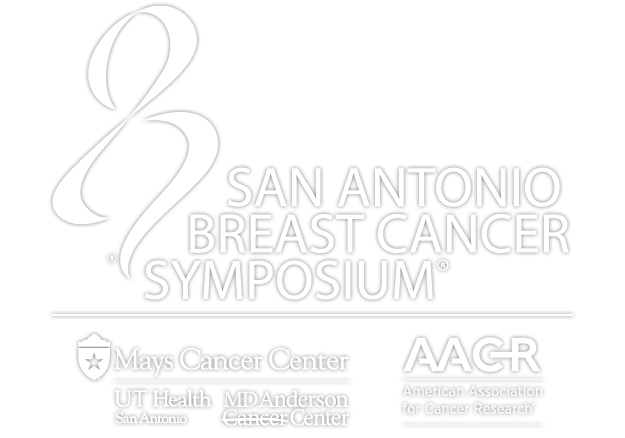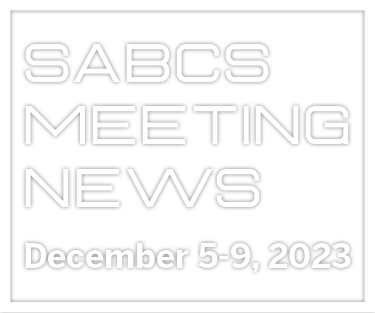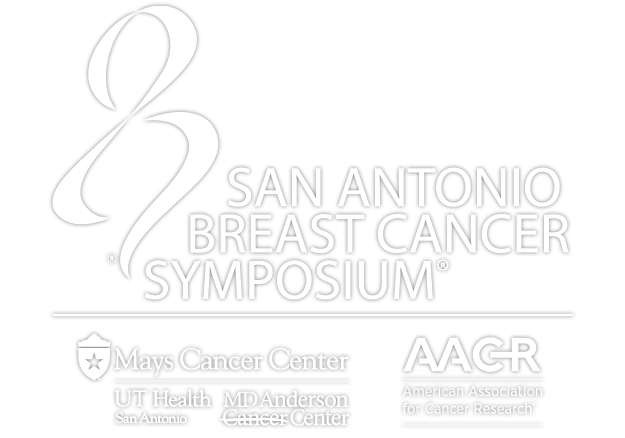
Characterizing the tumor and immune ecosystem is more than an academic exercise. Growing understanding of the melanoma microenvironment produced 11 targeted therapies for stage IV melanoma in the past decade. Breast cancer could be ripe for similar advances.
“We have seen major advances in melanoma and other cancers through the use of targeted and immunotherapies,” said Jennifer A. Wargo, MD, MMSc, Professor of Genomic Medicine and Surgical Oncology, The University of Texas MD Anderson Cancer Center. “For our patients with metastatic melanoma, that has doubled and now tripled survival for stage IV disease. These agents are being used successfully across cancer types and across the spectrum of disease.”
Dr. Wargo explored the rapid expansion in treatment options and success for melanoma during the Basic Science Forum “The Tumor and Immune Ecosystem of Breast Cancer” on Wednesday, Dec. 9.
Melanoma, breast, and other cancers are heterogeneous diseases, Dr. Wargo noted. Even the most successful treatments are not always durable, and toxicity is always an issue.
Melanoma researchers used a “reverse translation” approach to improve treatment strategies. Longitudinal samples of tissue and blood taken before, during, and after treatment go back to the bench to f evaluate factors that contribute to success and failure.
Initial tumor response to treatment is just one factor affecting outcome, Dr. Wargo continued. The tumor genome and epigenome are critically important, as are the tumor microenvironment, systemic immunity, external environment, tumor and gut microbiota, and other factors.
In melanoma, more than half of the patients have oncogenic BRAF mutations. These mutations can be targeted with BRAF/MEK inhibitors, but most patients on targeted therapy progress.
Molecular profiling of longitudinal samples revealed that treatment can encourage the development and proliferation of new oncogenic mutations that lead to immune evasion and metastasis.
In one example, loss of PTEN in tumors during treatment, which results in increased PI3K activity, can lead to resistance to immunotherapy. Targeting PI3K can enhance response to therapy.
Reverse translation also showed a strong molecular rationale for using targeted and immunotherapies in the neoadjuvant setting. Clinical trials confirmed higher RECIST response and improved recurrence-free survival for neoadjuvant treatment with BRCA/MEK inhibitors. Molecular studies also show a potential advantage to using these agents in earlier stage disease.
Microbiota also play a role in treatment resistance. Studies of stromal resistance in a variety of cancers found that mycoplasma can break down gemcitabine into an inactive form and rescue tumor. Multiple intra-tumoral microbes may contribute to carcinogenesis and therapy resistance, Dr. Wargo noted, and some may promote therapeutic response.

The gut microbiome can be critical to cancer therapy response. Multiple studies have shown that antibiotic therapy before checkpoint blockade is associated with lower treatment response and worse survival. Conversely, a high fiber diet, which promotes a healthier, more diverse gut microbial community, is associated with improved immunotherapy response.
“Diet can affect gut microbes in a short time frame,” Dr. Wargo said. “Dietary intervention trials in cancer therapy are already under way.”
Also during the Forum, Morag Park, PhD, Professor of Oncology, Medicine and Biochemistry, Director of the Goodman Cancer Centre, Diane and Sal Guerrera Chair in Cancer Genetics, McGill Faculty of Medicine and Health Sciences, Montreal, Canada, discussed the latest findings in spatial variance signatures and intra-tumor zonation in triple negative breast cancer.
SABCS registrants will have exclusive on-demand access to this and other virtual SABCS programming until March 13, 2021.



